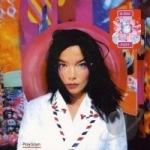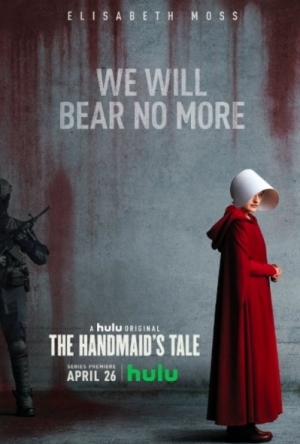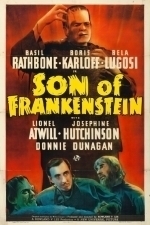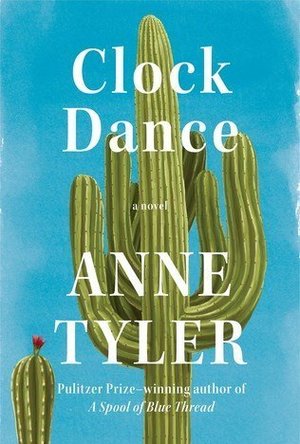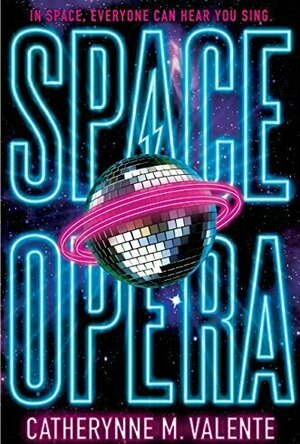Search
Natasha Khan recommended Post by Bjork in Music (curated)
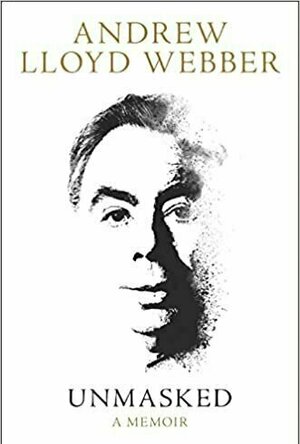
Unmasked: A Memoir
Book
“You have the luck of Croesus on stilts (as my Auntie Vi would have said) if you’ve had the sort...
Jamie (131 KP) rated The Handmaid's Tale - Season 1 in TV
Jul 15, 2017
Phenomenal casting (4 more)
Changes to the plot add more to the characters and world of Gilead
Gorgeous technicolor visuals
Retains the dark tone of it's source material
Wonderful original soundtrack
June's character is changed in a way that goes against one of the original messages of the book (1 more)
Soundtrack sometimes included pop songs that were jarring and obnoxiously loud
Adds new depth to an already incredible story
I LOVE The Handmaid's Tale. Both the book and now the television show. The show is stunningly beautiful in terms of it's visuals and soundtrack. The casting was outstanding, it is everything I ever wanted from an adaptation of this marvelous book.
The story is changed in some pretty big ways in an attempt to modernize the story. The setting has been changed to what seems like the present day in a more integrated United States. The television show added extra plot lines, giving more attention to some of the side characters and giving us their points of view seamlessly, something that would have been difficult and confusing in a written format. I loved seeing more of the side characters and with it, seeing Gilead be fully fleshed out and more terrifying than I ever could have imagined. It was wonderful seeing the story expanded to include the infertility epidemic, the fall of the United States, the protests and gradual rise of the nation of Gilead.
I was hesitant at first when I saw images of a young Commander and Serena Joy but the casting couldn't be more on point. Yvonne Strahovski is a powerhouse that really embodies Serena Joy, making her both a sympathetic and terrifying character. Elizabeth Moss, Samira Wiley, Ann Dowd, Alexis Bledel, and Madeline Brewer all deserve some serious praise for the way that they made all of their characters come alive.
An unfortunate casualty from the book were the changes to June's character, who went from being a disoriented every woman who did not recognize freedom when she had it and tragically lost everything. She wasn't ever meant to be the "hero," not like her mother or Moira who were outspoken feminists. This was an intentional set up in the book to be a cautionary tale of the importance of being vigilant and fighting to preserve one's autonomy. The June in the show on the other hand IS our hero, the fact that there is a season two means that we will have the resistance and the story will become more of your stereotypical dystopia where good will prevail and evil will always lose. It's not necessarily a bad thing, but it's a pretty standard plot that gets recycled over and over.
What the story added where the book was extremely bleak was that tiny glimmer of hope. Hope that Gilead won't last and that the bonds of family and friendship can overcome seemingly insurmountable odds. Be prepared to cry and those with triggers will probably have difficulty digesting some of the content in the show. The story doesn't shy away from difficult topics and the brutality can be startling.
The story is changed in some pretty big ways in an attempt to modernize the story. The setting has been changed to what seems like the present day in a more integrated United States. The television show added extra plot lines, giving more attention to some of the side characters and giving us their points of view seamlessly, something that would have been difficult and confusing in a written format. I loved seeing more of the side characters and with it, seeing Gilead be fully fleshed out and more terrifying than I ever could have imagined. It was wonderful seeing the story expanded to include the infertility epidemic, the fall of the United States, the protests and gradual rise of the nation of Gilead.
I was hesitant at first when I saw images of a young Commander and Serena Joy but the casting couldn't be more on point. Yvonne Strahovski is a powerhouse that really embodies Serena Joy, making her both a sympathetic and terrifying character. Elizabeth Moss, Samira Wiley, Ann Dowd, Alexis Bledel, and Madeline Brewer all deserve some serious praise for the way that they made all of their characters come alive.
An unfortunate casualty from the book were the changes to June's character, who went from being a disoriented every woman who did not recognize freedom when she had it and tragically lost everything. She wasn't ever meant to be the "hero," not like her mother or Moira who were outspoken feminists. This was an intentional set up in the book to be a cautionary tale of the importance of being vigilant and fighting to preserve one's autonomy. The June in the show on the other hand IS our hero, the fact that there is a season two means that we will have the resistance and the story will become more of your stereotypical dystopia where good will prevail and evil will always lose. It's not necessarily a bad thing, but it's a pretty standard plot that gets recycled over and over.
What the story added where the book was extremely bleak was that tiny glimmer of hope. Hope that Gilead won't last and that the bonds of family and friendship can overcome seemingly insurmountable odds. Be prepared to cry and those with triggers will probably have difficulty digesting some of the content in the show. The story doesn't shy away from difficult topics and the brutality can be startling.
Matthew Krueger (10051 KP) rated Son of Frankenstein (1939) in Movies
Oct 9, 2020
Boris Karloff (3 more)
Bela Lugosi
Basil Rathbone
Lionel Atwill
The Monster's Alive Once More
Son of Frankenstein- is a great continuation of the frankenstein franchise. Boris Karloff os back as the monster but this would be the last time he would play the monster in the universal monster universe. Its sad cause when you think of frankenstein, you think of Boris.
The plot: Baron Wolf von Frankenstein (Basil Rathbone) is determined to prove the legitimacy of his father's scientific work, thus rescuing the family name from disgrace. With the help of Ygor (Bela Lugosi), a grave robber, Wolf successfully reanimates the monster (Boris Karloff) his father originally brought back from the dead. But when several villagers are killed mysteriously, Wolf must find the culprit in order to vindicate his creation, or face the possibility that he may be responsible.
Universal's declining horror output was revitalized with the enormously successful Son of Frankenstein, in which the studio cast both stars.
After the ousting of the Laemmles from Universal and the British embargo on American horror films in 1936, Karloff and Lugosi found themselves in a career slump. For two years, horror films were out of favor at Universal Studios. On April 5, 1938, a nearly bankrupt theater in Los Angeles staged a desperate stunt by showing Frankenstein, Dracula and King Kong as a triple feature. The impressive box office results led to similarly successful revivals nationwide. Universal soon decided to make a big-budget Frankenstein sequel.
Son of Frankenstein marks changes in the Monster's character from Bride of Frankenstein. The Monster is duller and no longer speaks, explained by being injured by a lightning strike. The monster also wore a giant fur vest, not seen in the first two Frankenstein films, perhaps to add color to his appearance when the film was planned to be shot in color. He is fond of Ygor and obeys his orders. The Monster shows humanity in three scenes: first when he is disturbed by his image in a mirror, especially when compared to the Baron. Next, when he discovers Ygor's body, letting out a powerful scream, and later when he contemplates killing Peter but changes his mind. While the first two films were clearly set in the 1900s, this film appears to take place in the 1930s, judging by the appearance of a modern automobile.
Peter Lorre was originally cast as Baron Wolf von Frankenstein, but he had to leave the production when he became ill. Replacing Lorre was Basil Rathbone, who had scored a major triumph as Sir Guy of Gisbourne in The Adventures of Robin Hood, released the previous year.
According to the documentary Universal Horror (1998), the film was intended to be shot in color and some Technicolor test footage was filmed, but for artistic or budgetary reasons the plan was abandoned. No color test footage is known to survive, but a clip from a Kodachrome color home movie filmed at the studio and showing Boris Karloff in the green monster makeup, clowning around with makeup artist Jack Pierce, is included in the same documentary.
Its a excellent universal monster film.
The plot: Baron Wolf von Frankenstein (Basil Rathbone) is determined to prove the legitimacy of his father's scientific work, thus rescuing the family name from disgrace. With the help of Ygor (Bela Lugosi), a grave robber, Wolf successfully reanimates the monster (Boris Karloff) his father originally brought back from the dead. But when several villagers are killed mysteriously, Wolf must find the culprit in order to vindicate his creation, or face the possibility that he may be responsible.
Universal's declining horror output was revitalized with the enormously successful Son of Frankenstein, in which the studio cast both stars.
After the ousting of the Laemmles from Universal and the British embargo on American horror films in 1936, Karloff and Lugosi found themselves in a career slump. For two years, horror films were out of favor at Universal Studios. On April 5, 1938, a nearly bankrupt theater in Los Angeles staged a desperate stunt by showing Frankenstein, Dracula and King Kong as a triple feature. The impressive box office results led to similarly successful revivals nationwide. Universal soon decided to make a big-budget Frankenstein sequel.
Son of Frankenstein marks changes in the Monster's character from Bride of Frankenstein. The Monster is duller and no longer speaks, explained by being injured by a lightning strike. The monster also wore a giant fur vest, not seen in the first two Frankenstein films, perhaps to add color to his appearance when the film was planned to be shot in color. He is fond of Ygor and obeys his orders. The Monster shows humanity in three scenes: first when he is disturbed by his image in a mirror, especially when compared to the Baron. Next, when he discovers Ygor's body, letting out a powerful scream, and later when he contemplates killing Peter but changes his mind. While the first two films were clearly set in the 1900s, this film appears to take place in the 1930s, judging by the appearance of a modern automobile.
Peter Lorre was originally cast as Baron Wolf von Frankenstein, but he had to leave the production when he became ill. Replacing Lorre was Basil Rathbone, who had scored a major triumph as Sir Guy of Gisbourne in The Adventures of Robin Hood, released the previous year.
According to the documentary Universal Horror (1998), the film was intended to be shot in color and some Technicolor test footage was filmed, but for artistic or budgetary reasons the plan was abandoned. No color test footage is known to survive, but a clip from a Kodachrome color home movie filmed at the studio and showing Boris Karloff in the green monster makeup, clowning around with makeup artist Jack Pierce, is included in the same documentary.
Its a excellent universal monster film.
Goddess in the Stacks (553 KP) rated Clock Dance in Books
Aug 11, 2018
Clock Dance was the second pick for Barnes & Noble's nation-wide Book Club. (The first was Meg Wolitzer's The Female Persuasion, back in May.) Like the first one, it was contemporary fiction, which I'm pretty meh about. When I learned it was set mostly in Baltimore, and written by a local author, I became more interested. I'm originally from Oregon, but Baltimore has become my home, and I enjoy reading about it. We had a slightly larger group than last time, but I was the only returning attendee besides the store employee, Sam, who led the discussion.
Sam opened the discussion with the same question that she started the last one with - "Did you like the main character?" It's an interesting question because most people ask "Did you like the book?" which can have a different answer. I don't usually read books in which I don't like the main character, but that's usually because I choose my books. I'm not choosing my Book Club books, so it's a good question. Unlike last time, I did like Willa. I disagreed with her judgment when it came to husbands, but I still sympathized with her. I mentioned that I didn't like that she just floated through most of her life without any real ambition, but to be honest, I've done that too. I'm not a very ambitious person - or my ambitions are quite low. I think that, perhaps, is the difference. I find a lot of fulfillment in being, effectively, my husband's personal assistant. It's fun. Willa did not seem to find it fulfilling, she just - didn't want to rock the boat.
I like how we saw each of Willa's "defining moments" - the book opens on her as a child, her volatile mother having stormed out of the house during an argument. Her mother really does a number on her as a child. I think it's why she hates to rock the boat so much. From here, we fast forward to college, and Willa's boyfriend proposing to her after gaslighting her about an event that happened on the plane. Willa's mother disapproves. Vehemently. I think that's part of why Willa accepts. Our next view of Willa's life is the accident that takes her husband's life, and its aftermath.
Then we finally start into the real meat of the book, twenty years after the death of her first husband. Her sons have grown and moved away, she has remarried, and both of her parents have passed. Her husband is a little distant, and she seems rather untethered. Then she gets the strangest phone call. It turns out her eldest son lived with a woman (Denise) and her daughter for a little while in Baltimore; he has since moved on, but "Sean's mother" is still a phone number on Denise's emergency contact list. So when Denise is shot in the leg and put in the hospital, a neighbor lady sees it, assumes Willa is the grandmother of the child, and calls her to come take care of her. It's a little convoluted, and Willa can't even adequately explain to her husband why she's decided to fly to Baltimore to take care of a child she has no relation to, but she does so anyway.
This is where we get to Baltimore, and, in Anne Tyler's own words, "when her story changes to Technicolor."
I actually live just outside Baltimore myself, but one of my best friends lives in Charles Village, and I could SO EASILY envision Willa's neighborhood as a street of rowhomes. (Turns out it's probably based on a neighborhood in Hamilton, according to the Baltimore Sun.) I was even mapping locations in Willa's house to my friend's rowhome! Anne Tyler really captures the spirit of Baltimore, and now I want to read more of her books, even if they are contemporary fiction!
Overall I enjoyed Clock Dance; Anne Tyler is very good at subtle character growth, which is quite realistic. People don't often change all at once. Sometimes it takes a lifetime of being told what to do before finally waking up to what you WANT to do.
You can find all my reviews at http://goddessinthestacks.wordpress.com
Sam opened the discussion with the same question that she started the last one with - "Did you like the main character?" It's an interesting question because most people ask "Did you like the book?" which can have a different answer. I don't usually read books in which I don't like the main character, but that's usually because I choose my books. I'm not choosing my Book Club books, so it's a good question. Unlike last time, I did like Willa. I disagreed with her judgment when it came to husbands, but I still sympathized with her. I mentioned that I didn't like that she just floated through most of her life without any real ambition, but to be honest, I've done that too. I'm not a very ambitious person - or my ambitions are quite low. I think that, perhaps, is the difference. I find a lot of fulfillment in being, effectively, my husband's personal assistant. It's fun. Willa did not seem to find it fulfilling, she just - didn't want to rock the boat.
I like how we saw each of Willa's "defining moments" - the book opens on her as a child, her volatile mother having stormed out of the house during an argument. Her mother really does a number on her as a child. I think it's why she hates to rock the boat so much. From here, we fast forward to college, and Willa's boyfriend proposing to her after gaslighting her about an event that happened on the plane. Willa's mother disapproves. Vehemently. I think that's part of why Willa accepts. Our next view of Willa's life is the accident that takes her husband's life, and its aftermath.
Then we finally start into the real meat of the book, twenty years after the death of her first husband. Her sons have grown and moved away, she has remarried, and both of her parents have passed. Her husband is a little distant, and she seems rather untethered. Then she gets the strangest phone call. It turns out her eldest son lived with a woman (Denise) and her daughter for a little while in Baltimore; he has since moved on, but "Sean's mother" is still a phone number on Denise's emergency contact list. So when Denise is shot in the leg and put in the hospital, a neighbor lady sees it, assumes Willa is the grandmother of the child, and calls her to come take care of her. It's a little convoluted, and Willa can't even adequately explain to her husband why she's decided to fly to Baltimore to take care of a child she has no relation to, but she does so anyway.
This is where we get to Baltimore, and, in Anne Tyler's own words, "when her story changes to Technicolor."
I actually live just outside Baltimore myself, but one of my best friends lives in Charles Village, and I could SO EASILY envision Willa's neighborhood as a street of rowhomes. (Turns out it's probably based on a neighborhood in Hamilton, according to the Baltimore Sun.) I was even mapping locations in Willa's house to my friend's rowhome! Anne Tyler really captures the spirit of Baltimore, and now I want to read more of her books, even if they are contemporary fiction!
Overall I enjoyed Clock Dance; Anne Tyler is very good at subtle character growth, which is quite realistic. People don't often change all at once. Sometimes it takes a lifetime of being told what to do before finally waking up to what you WANT to do.
You can find all my reviews at http://goddessinthestacks.wordpress.com
A Bibliophagist (113 KP) rated Space Opera in Books
Jan 25, 2020 (Updated Jan 25, 2020)
Fun writing (2 more)
Creative
Witty
Overwritten (3 more)
Lacking plot
Disjointed and distracted
Boring
Technicolor Encyclopedia entry
Space Opera seems to be a book, that based on other reviews, you either love or hate. The love reviewers can't seem to tell me why they love it, most attempting to replicate the style of the author and relying on a menagerie of adjectives to express themselves. "A glitter punk, Eurovision romp!" "Technicolor whirlwind!" but not actually saying WHY they liked it, or just saying "well you didn't get the humor". The ones who disliked it are pretty clear, and as I struggled with this book I found I agreed with their complaints. However, I have to thank the sheer number of DNFs from the disliked group for causing me to, ironically, finish it. I hate DNFing books, to begin with, but when I saw just how many bad reviews didn't make it through, it felt as bad as the good reviews not actually reviewing anything. So I powered through, and honestly, it was worth finishing. The author really got back on track and it was a great ending.
Valente has in fact given us a Eurovision, glitter punk, electric baby with Douglas Adams, her writing fantastical and humorous, her characters vapid but in a washed-out musician kind of way. She really thought about this book, creating droves of aliens and probably destroying a number of thesauri to bring them to life. We follow Decibel Jones of the "oh you haven't heard of it, well we used to be a thing" Decibel Jones and the Absolute Zeros. A washed-up, no longer active glitter punk band who is an amalgam of every band you probably are thinking of when trying to grasp what that description means.
The book opens with a wonderfully witty description of how there is in fact other life out there in the universe, life is easy to come by, they've just been off doing a galactic war and while they were gone we kind of popped up. Life is stupid. This part is the best part of the book. The humor is on point, the prose magnificant. She is spot on and very pointed in her argument for why war happens. It's people vs meat, and how does one determine something isn't meat, but in fact sentient? Well, no one really figured that out, hence the galactic war, but NOW post-war they think they've figured it out. Intergalactic Music competition. Makes sense, only something sentient could create music right?
Well, this year is a special year because Earth is invited, we've been deemed "may be sentient", but questionable enough that they'd rather not let us just hang out and become annoying someday. So we have to present a band and performance for consideration. We just have to not place last. If we don't place last, we're part of the club and we'll be a-ok. If we place last, we'll be destroyed, because they already think we're annoying and that will mean we're meat. People vs meat remember?
So, one day everyone on the planet earth, everyone, awake or sleeping is visited by the blue birdlike projection of our assigned guides, the Esca, and alien species that are new to the whole being accepted as a sentient thing, and will guide us through the competition. Which it is now telling us about, Suprise! They've chosen a list of musicians they think will do well, however it's outdated and only one band is really able to do it, the has-beens, who are they, Decibel Jones and the Absolute Zeros. Time was rough on our glam-punk friends as it tends to be on musicians, they lost the third member about a decade ago, the two remaining no longer talk. Decibel is a trainwreck, and Oort St Ultraviolet is now just a dad who very much wants to be a regular dude. But now they're being whisked off into space to sing for the world's salvation.
Sounds pretty fun right? This plus Douglas Adams type prose and humor? A real knock out. Unfortunately, that story I just described takes up... maybe a quarter of the book, MAYBE. You can pull the main story out and put it into a book that might be too small to be a novella. Because of this, the backstory, development, and exploration of these characters are slim to nothing. There is some mind you, but very little. It isn't until the 180pg mark or so that Valente actually decides to focus on the plot, giving very little time to do the entire Grand Prix, the actual competition takes up a page. A 288-page book about a singing competition and only 1-2 pages is actually the singing competition. Tack on another 10 maybe for the weird cocktail death party right before, that didn't have enough attempted death to make any real point of it, plus maybe another 5-10 scattered throughout the book on the back story and leading up to the story, and we've got MAYBE 25 pages of the actual plot. My math is wrong, I know, but it sure FEELS like this.
So, in a 288-page book, with 25 pages being the actual story, what are the other 263 pages? It was the author being somewhat... I don't mean to sound mean, but full of herself? She tried WAY too hard on this style she was going for. It felt like an "oh, you liked that opening chapter, didn't you? You totally read it out loud to your boyfriend, well here let me give it to you again, and again, and ... again". This book suffers from a severe case of needing to be edited. Of someone saying "that's enough now dear, but what about the story". Every few pages of the backstory of the plot we got were met with full chapters, sometimes multiple of Valente describing yet another alien species she's created, in yet another chain of witty simile and metaphor. To the point where sometimes I no longer knew what was happening, they were all interchangeable, which alien are we talking about now? It went on and on and on, and I never knew how such humorous writing could be just so soul suckingly boring. When she ran out of aliens it was describing previous grand prix's and how the aliens sang. In the exact same, formulaic, witty simile, witty simile, witty simile. Don't get me wrong, there were some absolute gems in here. Some that made me laugh out loud. But it's all about the ratio. I would trade in a heartbeat the ratio in this book. 263 pages of plot, and 25 pages of aliens described in witty simile. It took everything in my power after the third alien chapter to not skim. But she fit so much into a sentence that I was scared somewhere hiding would be a plot point (spoiler alert, there wasn't, skim away).
Then around the 180 page mark, a flip was switched, it was almost as if she went "crap, a story!" the adjective use was slimmed down dramatically and we actually got more than one chapter in a row with a plot point. But at this point, it was too late, the end of the book was hurdling at us and very little had happened and the book pretty much fizzled out with an "oh yeah, the Grand Prix happened". Mind you, the finale was very heartwarming and I liked it a lot. I just wish I hadn't had to read a full chapter about hairbrush interspecies sex to get there, and instead had more of it. But ironically, the hairbrush sex had more plot advancement that the majority of the book.
The ending did, however, for one moment, make me forget that I had just read an encyclopedia of descriptors and was happy for a few minutes. So good on her for that. That proves to me that she can write more than glittery descriptions, which then made me sad I didn't have more of that writing. With just a spattering of the gold of her opening chapters. I am glad I finished the book, the story, what little there was, was worth the read. However, I have no desire to read any other of Valente's writing now, and if there was a sequel, I just don't think I have it in me to read another 263 pages of description. Cool idea, good ability, just terribly executed. She could easily have released a separate book, expanding on a handful of species she established in the book, like an alien compendium, and I would have read it, and laughed, and been okay because I went into it expecting it. But I went into this wanting a story, not a neon throwup encyclopedia of just how "oh so creative" Valente is. That came off harsh, I know, but they blew past the fine line of interesting and well into the self-serving, look what I can do, territory. What suffered for it wasn't just a large number of DNFs, and my sanity for a few days, but an actually interesting, fun, Eurovision, glitter punk, heartwarming story about loss, life, how stupid it is, how beautiful it is, and why we should fight for it. It's in there, hiding beneath the layers and layers of word vomit. I want that story. Please release a second edition that is just that, the opening, and say... 3-5 of your favorite aliens Valente, I promise I'll give it another try if you do.
Valente has in fact given us a Eurovision, glitter punk, electric baby with Douglas Adams, her writing fantastical and humorous, her characters vapid but in a washed-out musician kind of way. She really thought about this book, creating droves of aliens and probably destroying a number of thesauri to bring them to life. We follow Decibel Jones of the "oh you haven't heard of it, well we used to be a thing" Decibel Jones and the Absolute Zeros. A washed-up, no longer active glitter punk band who is an amalgam of every band you probably are thinking of when trying to grasp what that description means.
The book opens with a wonderfully witty description of how there is in fact other life out there in the universe, life is easy to come by, they've just been off doing a galactic war and while they were gone we kind of popped up. Life is stupid. This part is the best part of the book. The humor is on point, the prose magnificant. She is spot on and very pointed in her argument for why war happens. It's people vs meat, and how does one determine something isn't meat, but in fact sentient? Well, no one really figured that out, hence the galactic war, but NOW post-war they think they've figured it out. Intergalactic Music competition. Makes sense, only something sentient could create music right?
Well, this year is a special year because Earth is invited, we've been deemed "may be sentient", but questionable enough that they'd rather not let us just hang out and become annoying someday. So we have to present a band and performance for consideration. We just have to not place last. If we don't place last, we're part of the club and we'll be a-ok. If we place last, we'll be destroyed, because they already think we're annoying and that will mean we're meat. People vs meat remember?
So, one day everyone on the planet earth, everyone, awake or sleeping is visited by the blue birdlike projection of our assigned guides, the Esca, and alien species that are new to the whole being accepted as a sentient thing, and will guide us through the competition. Which it is now telling us about, Suprise! They've chosen a list of musicians they think will do well, however it's outdated and only one band is really able to do it, the has-beens, who are they, Decibel Jones and the Absolute Zeros. Time was rough on our glam-punk friends as it tends to be on musicians, they lost the third member about a decade ago, the two remaining no longer talk. Decibel is a trainwreck, and Oort St Ultraviolet is now just a dad who very much wants to be a regular dude. But now they're being whisked off into space to sing for the world's salvation.
Sounds pretty fun right? This plus Douglas Adams type prose and humor? A real knock out. Unfortunately, that story I just described takes up... maybe a quarter of the book, MAYBE. You can pull the main story out and put it into a book that might be too small to be a novella. Because of this, the backstory, development, and exploration of these characters are slim to nothing. There is some mind you, but very little. It isn't until the 180pg mark or so that Valente actually decides to focus on the plot, giving very little time to do the entire Grand Prix, the actual competition takes up a page. A 288-page book about a singing competition and only 1-2 pages is actually the singing competition. Tack on another 10 maybe for the weird cocktail death party right before, that didn't have enough attempted death to make any real point of it, plus maybe another 5-10 scattered throughout the book on the back story and leading up to the story, and we've got MAYBE 25 pages of the actual plot. My math is wrong, I know, but it sure FEELS like this.
So, in a 288-page book, with 25 pages being the actual story, what are the other 263 pages? It was the author being somewhat... I don't mean to sound mean, but full of herself? She tried WAY too hard on this style she was going for. It felt like an "oh, you liked that opening chapter, didn't you? You totally read it out loud to your boyfriend, well here let me give it to you again, and again, and ... again". This book suffers from a severe case of needing to be edited. Of someone saying "that's enough now dear, but what about the story". Every few pages of the backstory of the plot we got were met with full chapters, sometimes multiple of Valente describing yet another alien species she's created, in yet another chain of witty simile and metaphor. To the point where sometimes I no longer knew what was happening, they were all interchangeable, which alien are we talking about now? It went on and on and on, and I never knew how such humorous writing could be just so soul suckingly boring. When she ran out of aliens it was describing previous grand prix's and how the aliens sang. In the exact same, formulaic, witty simile, witty simile, witty simile. Don't get me wrong, there were some absolute gems in here. Some that made me laugh out loud. But it's all about the ratio. I would trade in a heartbeat the ratio in this book. 263 pages of plot, and 25 pages of aliens described in witty simile. It took everything in my power after the third alien chapter to not skim. But she fit so much into a sentence that I was scared somewhere hiding would be a plot point (spoiler alert, there wasn't, skim away).
Then around the 180 page mark, a flip was switched, it was almost as if she went "crap, a story!" the adjective use was slimmed down dramatically and we actually got more than one chapter in a row with a plot point. But at this point, it was too late, the end of the book was hurdling at us and very little had happened and the book pretty much fizzled out with an "oh yeah, the Grand Prix happened". Mind you, the finale was very heartwarming and I liked it a lot. I just wish I hadn't had to read a full chapter about hairbrush interspecies sex to get there, and instead had more of it. But ironically, the hairbrush sex had more plot advancement that the majority of the book.
The ending did, however, for one moment, make me forget that I had just read an encyclopedia of descriptors and was happy for a few minutes. So good on her for that. That proves to me that she can write more than glittery descriptions, which then made me sad I didn't have more of that writing. With just a spattering of the gold of her opening chapters. I am glad I finished the book, the story, what little there was, was worth the read. However, I have no desire to read any other of Valente's writing now, and if there was a sequel, I just don't think I have it in me to read another 263 pages of description. Cool idea, good ability, just terribly executed. She could easily have released a separate book, expanding on a handful of species she established in the book, like an alien compendium, and I would have read it, and laughed, and been okay because I went into it expecting it. But I went into this wanting a story, not a neon throwup encyclopedia of just how "oh so creative" Valente is. That came off harsh, I know, but they blew past the fine line of interesting and well into the self-serving, look what I can do, territory. What suffered for it wasn't just a large number of DNFs, and my sanity for a few days, but an actually interesting, fun, Eurovision, glitter punk, heartwarming story about loss, life, how stupid it is, how beautiful it is, and why we should fight for it. It's in there, hiding beneath the layers and layers of word vomit. I want that story. Please release a second edition that is just that, the opening, and say... 3-5 of your favorite aliens Valente, I promise I'll give it another try if you do.
